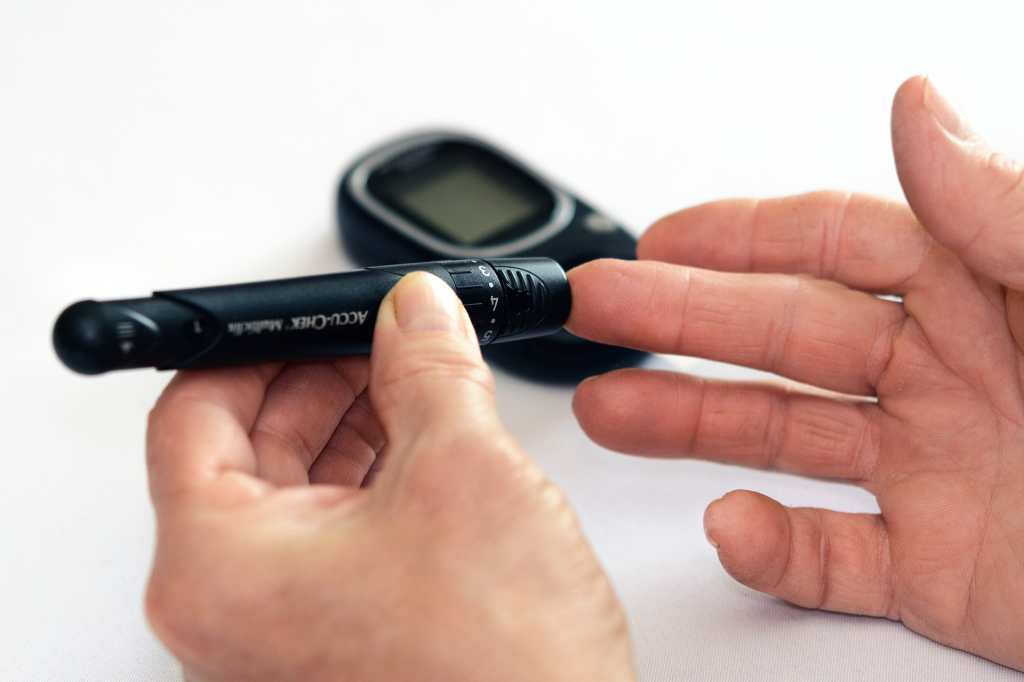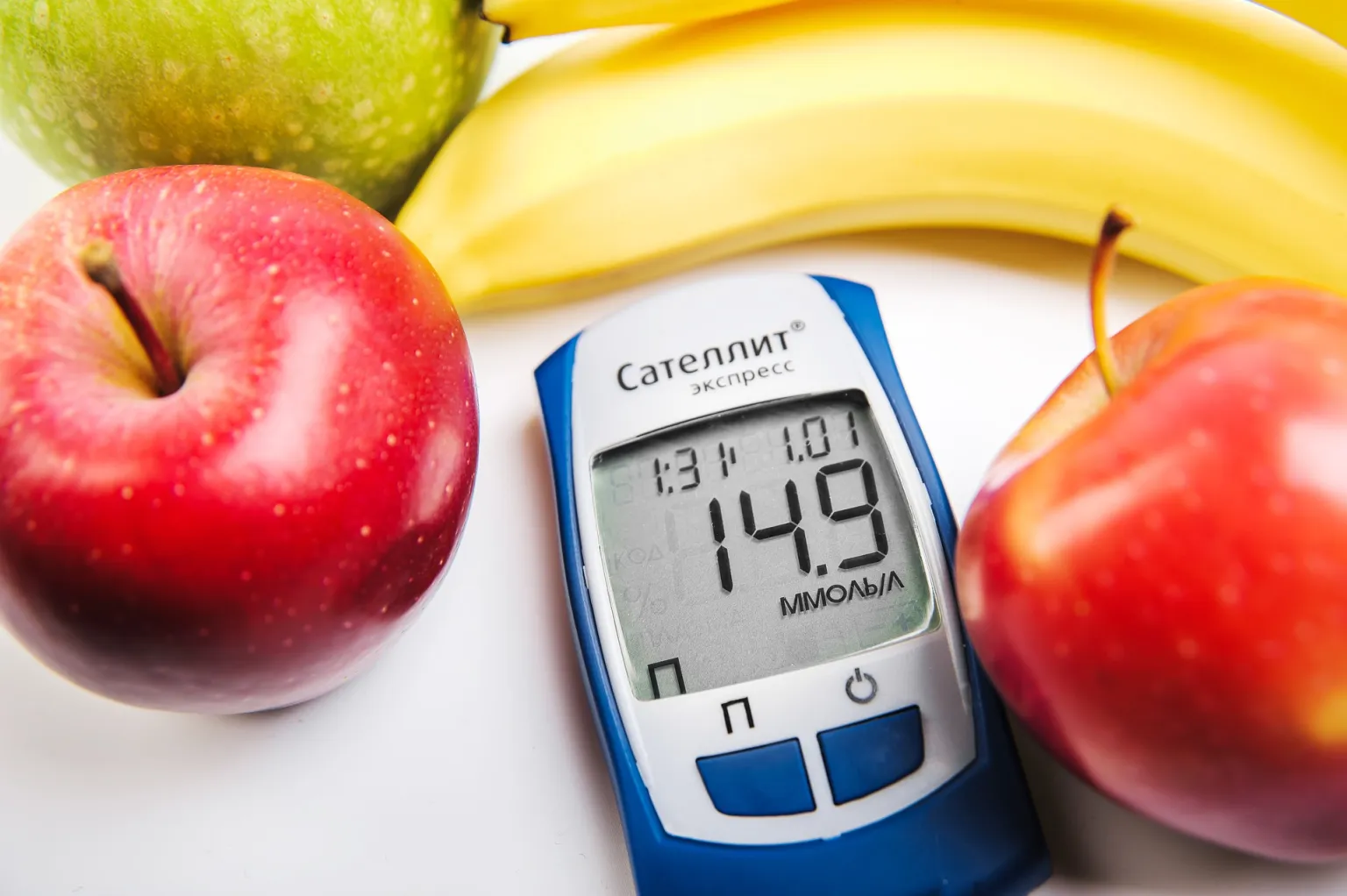Glucose is commonly known as blood sugar and is essential to keeping the human body functioning optimally.
This monosaccharide, along with fat, is one of the most commonly used fuel sources by the human body in the form of carbohydrates. The most common way to obtain glucose is through the consumption of bread, fruits, and vegetables.
Despite its importance in the functioning of the body, it is advisable to consume glucose in moderation since having glucose levels in an uncontrolled range can have permanent and serious effects on people.
Having very high glucose levels can cause various diseases in the human body, which is why it is vital to know the causes why glucose levels can rise.
Causes of high glucose
The causes of high glucose in the body can be varied. In everyday life, people can follow unhealthy habits that cause the level of glucose in the blood to rise.
These can range from overeating to poor nutrition and can become recurrent in many people’s daily routines.
Poor nutrition
Excessive amounts of food containing carbohydrates can be harmful to health and increase glucose levels in a person’s body to very high levels.
To control glucose levels, it is necessary to avoid foods such as dairy products, dried fruit, white bread, white rice, pasta, cakes, beets, and cereal bars.
Do not do any type of physical activity.
A sedentary lifestyle is one of the most common causes of physical and health problems in the human body. Lack of physical activity can increase glucose levels in people.
Health experts recommend doing at least 150 minutes of physical activity a week. For the best benefits and to lower blood sugar levels, walking, cycling, stretching exercises, and swimming are recommended.
High levels of stress
When stressed, the human body prepares itself to ensure that it has enough sugar and energy ready. This situation raises the glucose level enormously.
As a result of this process, glucose levels in the bloodstream are higher than usual and this causes the body to be less sensitive to insulin.

How to lower glucose
High blood glucose occurs when the body does not efficiently transport sugar from the blood to the cells. This problem can cause health problems and even lead to diabetes.
To lower your glucose and keep it within a normal range, you need to make some significant changes to your usual lifestyle. Here are some suggestions for lowering your glucose and keeping it within a normal range.
Exercise daily
Exercise helps the body’s cells better use the glucose available in the blood and increases insulin sensitivity.
Activities such as weight lifting, brisk walking, cycling, swimming, dancing, or playing sports can help the body control glucose levels and keep them low.
Reduce carbohydrate consumption
When you eat a high amount of carbohydrates, the body produces an extremely high amount of sugar, and glucose levels rise.
A low-carbohydrate diet helps reduce blood glucose levels and prevent spikes in the short and medium term.
Stay hydrated
Drinking water within the recommended limits can significantly help lower glucose levels in the human body.
In addition to preventing dehydration, drinking water helps the kidneys drain excess glucose from the blood through urine.
Drinking water regularly lowers glucose levels in the body, reduces the risk of developing diabetes, and rehydrates the blood.
Get enough sleep
Getting adequate rest is necessary to maintain good health. Lack of sleep can affect glucose levels as this situation releases growth hormones and increases cortisol levels, substances that are important in glucose control.

Symptoms of high glucose
Excessive urination
A clear symptom of high glucose is repeated urination.
People with high blood glucose need to urinate more often and in larger quantities, as their kidneys expel excess glucose through this process.
Consuming too much water
Because of the amount of fluid they lose through excessive urination, people with high glucose levels tend to be very thirsty and tend to consume extremely high amounts of water.
Sudden weight loss
People with a high glucose problem in their system often lose weight despite not having lost their appetite and continuing to eat regularly.
Without insulin to help the body use glucose, the body will have to break down and use stored fat to provide fuel and generate energy.
Constant tiredness
Because the human body cannot properly use glucose as a primary source of energy, people with high levels of glucose in their bodies often feel unusually tired and are constantly exhausted without having performed any physical activity.

What is the normal range for glucose?
Normal glucose levels in the body change throughout the day and are due to several factors. Glucose levels are generally at their lowest in the early morning hours.
On the other hand, glucose levels rise after meals and continue to rise as the body ingests food.
Thus, the normal glucose level in the human body on an empty stomach is 70 to 90 milligrams per deciliter (mg/dl) and two hours after eating is 70 to 140 mg/dl.























+ There are no comments
Add yours